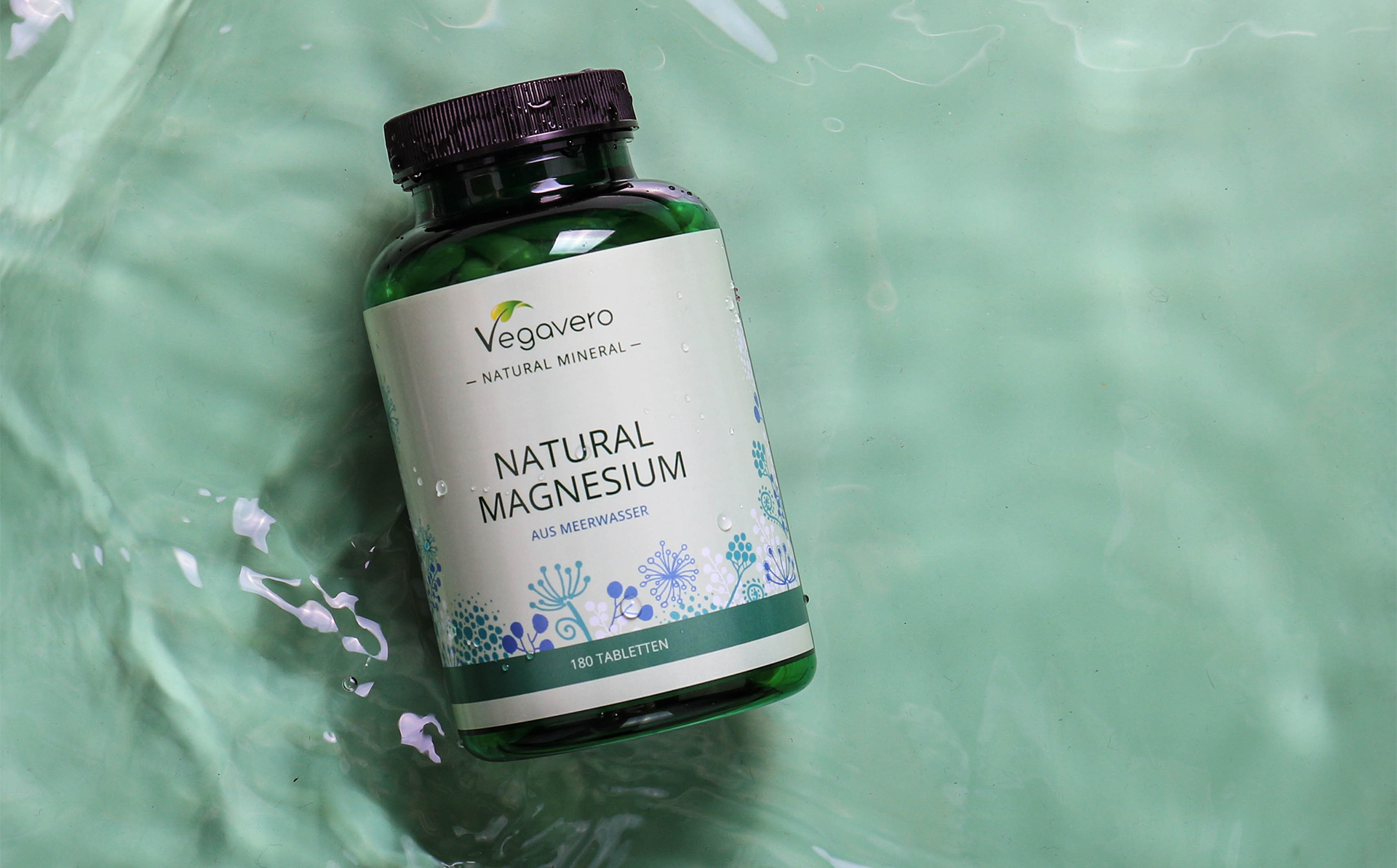
Every one of us has experienced it: during a peaceful good night’s sleep you suddenly wake up because of your leg muscles cramping up. People who go through this on a regular basis may have low magnesium levels in their bodies. Indeed, magnesium is indispensable for muscle function as it helps with regulating muscle contractions. However, being the fourth most abundant mineral in the body it certainly has more to offer than simply helping our body move.
One of magnesium's main roles is acting as a cofactor or helper molecule in enzymatic reactions. In fact, it’s involved in more than 600 metabolic processes in the body, including energy production, protein, DNA and RNA synthesis, as well as nervous function [1]. With magnesium having so many vital tasks it’s not hard to imagine that a deficiency can cause serious health problems. Low levels of magnesium have been associated with several diseases including migraines [2], neurodegenerative [3] and cardiovascular diseases [4], as well as diabetes [5].
Although magnesium is found in a variety of (mostly plant-based) foods - including nuts and seeds, green leafy vegetables, legumes, avocado, as well as tofu – a lot of people do not meet the recommended daily magnesium requirements. A magnesium supplement can therefore be a good choice to prevent deficiency symptoms and severe health problems.
Natural Magnesium from The Sea
Unfortunately, many manufacturers often rely on mineral forms that are highly processed or even synthetic. We selected a natural source of magnesium for our product: The unique, high-quality raw material Aquamin™ MG with marine magnesium sustainably derived from the clean waters off the Irish coast. Yes, Magnesium is also found in sea water! The production process is very straight-forward with minimal environmental impact: calcium oxide is added to sea water, causing magnesium hydroxide to precipitate which is then repeatedly washed, filtered and dried to a fine powder.
Of course, sea water contains more than just magnesium. In fact, the finished product is more of a multi-mineral complex with over 70 trace minerals and elements. Scientific literature suggests that supplements with isolated mineral forms are incapable of providing the same benefits as supplements containing both the mineral and complementary minerals. Indeed, marine derived magnesium was found to be superior to inorganic sources of magnesium in terms of bioavailability and biological activity [6].
Another aspect about supplements we need to consider is dosing. Many manufacturers of low-quality magnesium supplements often advertise their very high doses. Since our magnesium is more efficiently absorbed and utilized in the body, it doesn’t require a high dose to ensure an adequate supply of magnesium to complement the amount taken up through food. Furthermore, large doses of magnesium may cause diarrhea, nausea, muscle weakness and even low blood pressure and heart problems in the long run.
Go for natural!
As we’ve pointed out, low magnesium levels in the body can lead to serious side effects. High magnesium levels, however, are just as dangerous. It’s therefore crucial to supplement carefully, if a supplement is required. Isolated, highly processed magnesium tablets are considered inferior to natural supplements on many levels and should be avoided. Our sustainably sourced magnesium is carefully dosed and thus is a much safer choice for ensuring a sufficient supply of magnesium.
Sources
[1] De Baaij et al., Magnesium in man: implications for health and disease. Physiol Rev. (2015)
[2] Veronese et al., Magnesium and health outcomes: an umbrella review of systematic reviews and meta-analyses of observational and intervention studies. Eur J Nutr. (2020)
[3] Kirkland et al., The role of magnesium in neurological disorders. Nutrients (2018)
[4] Peacock et al., Serum magnesium and risk of sudden cardiac death in the atherosclerosis risk in communities (ARIC) study. Am Heart. (2010)
[5] Dong et al., Magnesium intake and risk of type 2 diabetes: meta-analysis of prospective cohort studies. Diabetes Care (2003)
[6] Bae et al., Magnesium supplementation through seaweed calcium extract rather than synthetic magnesium oxide improves femur bone mineral density and strength in ovariectomized rats. Biol Trace Elem Res. (2011)


